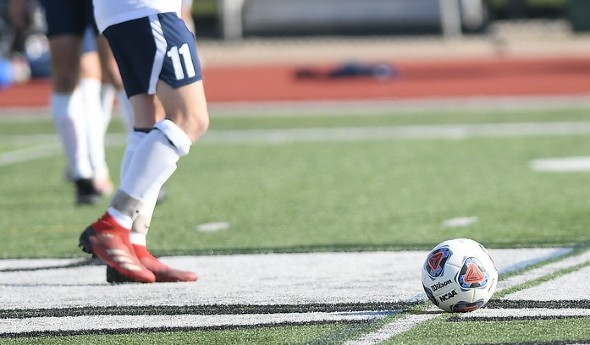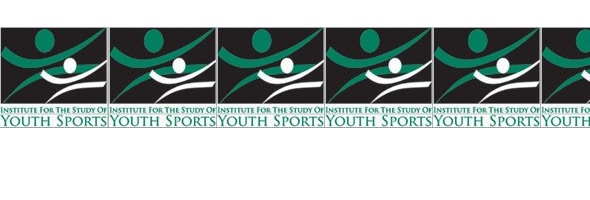
Acupuncture Can Enhance Performance
January 5, 2021
Henry Ford Health System
In the ancient Chinese medicine of acupuncture, thin needles are gently inserted into specific areas of the body, stimulating blood flow to speed the recovery of certain ailments.
It can be used as a treatment for everything from headaches and unbalanced hormones to joint pain and weakened immune systems. Acupuncture is also popular among athletes, as many of them incorporate it into their wellness regimens to stay in peak physical condition.
“Back in the day, athletes ate steak, smoked cigars and drank whiskey during the week and then played football on Sunday,” says Thomas Betts, a sports medicine acupuncturist with Henry Ford Health System. “But today, to improve their performance, athletes are attacking the body from every angle possible with diet, lifestyle and exercise. NBA players, for example, have talked about how acupuncture keeps them feeling their best.”
But you don’t have to be an NBA star to reap the benefits of acupuncture. Whether you’re a professional or student athlete, or you exercise and play sports for fun or to challenge yourself, here are ways acupuncture can boost your game:
- Acupuncture can help you recover more quickly from an injury. “If a muscle is torn, acupuncture won’t put it back together, but for sprains and strains, muscle soreness and tendonitis, acupuncture can decrease inflammation and speed the healing process,” says Betts.
- Acupuncture can reduce the need for “rest days.” If you just had an intense workout and your muscles are sore, getting acupuncture afterward can loosen the muscles and decrease soreness so you don’t have to take a day off to recuperate before training again.
- Acupuncture can improve flexibility, decrease muscle tension and increase muscle activation. “This is done with motor point acupuncture,” says Betts. “The motor point is where the brain attaches to the muscle via the motor nerve. By using needles to stimulate a motor point, it is like rebooting a phone or computer that isn’t working well: Motor point acupuncture is autoregulating, in that it can deactivate a tight muscle or reactivate an inhibited or weak muscle.”
- Acupuncture can provide immediate pain relief. “Some studies show that acupuncture can provide as much as, if not more pain relief than medication,” Betts says. “It differs for everyone, and it depends on what is being treated, but some people say they feel a difference right after a session, and others say they feel better about 20 to 30 minutes later.” Pain relief can last from a few hours to a few days.
- Acupuncture can help prevent injury. Because acupuncture can reactivate weak muscles and decrease muscle tension, it can also be used as a preventative measure against injury, Betts says. But you should always still stretch before and after exercising!
Learn more about acupuncture and other integrative medicine services at Henry Ford. To make an appointment, you can request one online or by calling 1-833-246-4347.
Thomas Betts, DOAM, RAc, is a certified sports acupuncturist with Henry Ford Health System. He sees patients at the Henry Ford Center for Athletic Medicine in Detroit.

Specialization Not the Only Pathway
April 21, 2015
 By Eric Martin
By Eric Martin
MSU Institute for the Study of Youth Sports
Specialization is not a new topic facing athletes and parents.
In a 1989 study by Hill and Simons, athletic directors indicated that the three-sport athletes of the past were being replaced by athletes who only participated in a single sport. Multiple athletic directors indicated that the decrease of multi-sport participation was a concern for all involved in the sport environment as increased emphasis on sport specialization was not in the true vision of high school sports.
Even though the distress concerning sport specialization is not a new topic, the rise of club sports and year-round travel teams have increased the number of youth athletes who are forced to make a choice between playing multiple sports or focusing their time and training efforts solely on one sport. The decision to focus solely on one sport sometimes is done by athletes (or their parents) who believe that quitting other sports is the sole way to earn a coveted college scholarship.
However, even though counter intuitive, sport specialization may be hampering their pursuit to play at the next level.
Elite level achievement in sport is rare, with statistics showing that only 0.12 percent of high school athletes in basketball and football eventually reach the professional level. To combat these odds, many in popular media including Malcolm Gladwell have forwarded Anders Ericcson’s proposal that to become an expert in a field, an individual must accumulate 10,000 hours of practice.
To achieve this aim, many parents and athletes disregard other sports believing that extra exposure to a single sport may result in accumulating these hours quicker and increase an athlete's chances of elite skill achievement. Reducing the achievement of sport excellence to solely practice hours overlooks the importance that developmental, psychosocial, and motivational factors play in the achievement of high level success in youth. Further, several research studies have found that elite athletes typically fall short of this 10,000 hour milestone.
Simply accumulating a magic number of hours does not guarantee sport success, and in fact, trying to accumulate these hours too early can lead to many different negative outcomes for youth.
Sport specialization has been shown to have a variety of negative physiological and psychological outcomes for youth athletes. Typically, athletes who specialize in one sport play that sport year-round with little or no offseason. In these cases, athletes who continually perform repetitive motions such as throwing or jumping can experience overuse injuries that can range from tendinitis to torn ligaments.
In addition to the increased risk of injury, youth who specialize and play a single sport year-round are at risk for psychological issues as well. Youth who play a single sport are less likely to allow for proper recovery and face the increased chance of burnout or decreases in motivation that may result in leaving sport entirely. Additionally, as practice time demands and multiple league involvement increases, youth may feel added pressure to succeed due to the increased time and financial costs incurred by parents.
Finally, youth who specialize early in only one sport do not develop the fundamental motor skills that help them stay active as adults, instead only developing a very narrow skill set of a single sport.
If the dangers of sport specialization do not encourage multisport participation, a majority of studies have shown that sport specialization does not increase long-term sport achievement. In fact, most studies indicate that athletes who reach the highest level of sport achievement typically played a variety of sports until after they were well into high school.
For example, a study with British athletes found that youth who played three or more sports at the ages of 11, 13, and 15 had a significantly higher likelihood of playing on a national team at ages 16 and 18. These athletes had a more rounded set of skills, were more refreshed for their chosen sport, and were more psychologically and emotionally ready to perform due to their experiences in a number of sports.
A study recently conducted by the Institute for the Study of Youth Sports with collegiate athletes showed similar results as the British athlete study. In the ISYS study, 1,036 athletes from three Division I universities were asked to report their past youth sport participation. On average, youth participated in three or more sports in elementary and middle school. The number of sports youth participated in decreased with each year of high school, but even with the decrease of participation, a larger number of individuals played more than one sport during every year of high school including senior year than those who played a single sport.
Even though a majority of athletes did play at least two sports throughout high school, several athletes did indicate that they specialized in one sport indicating that there are multiple pathways to elite sport achievement.
Athletes were also asked for their perception of how important it was to specialize in one sport in order to earn a college scholarship. On a scale of 1-9, athletes felt that specializing in one sport prior to high school was neither important nor unimportant (4.97).
Sport specialization is not a new issue, but that does not minimize the damage that can occur if athletes are overtaxed early in their development. Each athlete is unique, and each situation requires care. If an athlete does decide to play in only one sport, the decision should be made in regards to the athlete’s interest and development, not just in the pursuit of a college scholarship. Additionally, if athletes specialize in one sport, it is critical to understand that youth are developing and proper recovery is critical both physically and psychologically.
Early specialization in sport is an issue that is not going to go away, but for coaches, parents, and athletes this decision should be made with a long-term perspective and with the athletes’ long-term well-being central to the choice.
Martin is a fourth-year doctoral candidate in the Institute for the Study of Youth Sports at Michigan State University. His research interests include athlete motivation and development of passion in youth, sport specialization, and coaches’ perspectives on working with the millennial athlete. He has led many sessions of the MHSAA Captains Leadership Clinic and consulted with junior high, high school, and collegiate athletes. If you have questions or comments, contact him at [email protected].


